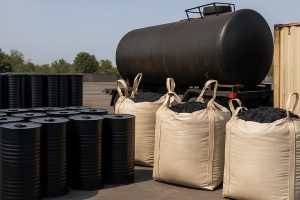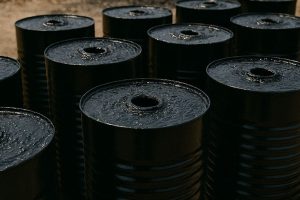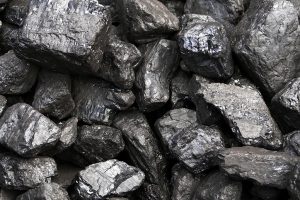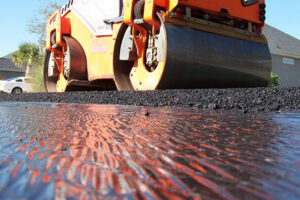What is Bitumen 50/70: Bitumen 50/70+ uses and advantages!
Bitumen is an important material in road construction infrastructure. However, bitumen products have uses beyond building roads and highways. For instance, engineers also use bitumen products to make waterproofing membranes for building roofs. Did you know that there are different grades of bitumen? Yes, various grades of bitumen are used for different purposes, and one of them is bitumen 50/70. But what exactly is 50/70 bitumen? For more information, you can read the rest of this article from Iran E Trade.
What is bitumen 50/70?
50/70 bitumen is an industrial product and is named according to its penetration grade. The penetration grade of bitumen refers to its hardness and viscosity, which experts classify based on a test measuring the penetration depth of a needle into the bitumen. Bitumen 50/70 has specific characteristics and properties, and manufacturers produce it through a certain process. In this article from Iran E Trade, we will provide further explanations about the different traits of 50/70 bitumen.
(For information about What is Penetration Bitumen , refer to the article Penetration Grade Bitumen)

What is the production process of bitumen 50/70?
To produce bitumen 50/70, manufacturers must first supply crude oil. This is because the main source of industrial bitumen production is crude oil. Then, they process crude oil through an early stage of partial distillation. After that, they heat crude oil to 300 to 350 degrees Celsius.
Next, they insert the heated crude oil into the atmospheric distillation column. At this stage, the components of crude oil are separated by their boiling points. The lighter components move to the top of the column, while heavier components that include bitumen remain at the bottom of the container.
(For more information refer to the article What is Bitumen)

Vacuum distillation and blowing air into bitumen
Next, bitumen manufacturers expose the heavier residue to a vacuum distillation process that separates lighter oils from the heavier ones in the mix. In this way، the remainder of the vacuum distillation is produced. After the vacuum residue is produced, the manufacturers place it in an air-blowing unit.
At this stage, they place the remaining bitumen under certain conditions of temperature and air pressure, which causes molecular chemical reactions in the bitumen and increases its viscosity. Ultimately, it is the process that gives bitumen 50/70 its traits and special features. But what exactly are these features?
(For more information about price and use bitumen 70/100, refer to the article bitumen 70/100)

What are bitumen 50/70 technical specifications?
We mentioned earlier that each graded bitumen product has its properties and characteristics. The same goes for bitumen 50/70. This bitumen has several important features that make it useful for various applications. These features include:
(For information about MC Bitumen, refer to the article What is MC Bitumen.)

1. The penetration grade
The penetration grade of each bitumen is its hardness or softness. In the case of bitumen 50/70, this grade is between 50 and 70. This gradation means that a standard needle can penetrate the bitumen by 50-70 mm. As a result, this degree of penetration indicates that 50/70 bitumen has a balance between softness and hardness. Hence, it is suitable for use in temperate climates.
(For more information about price and use bitumen 85/100, refer to the article bitumen 85/100)

2. Softening point
The softening point of bitumen plays a vital role in its performance. Essentially, this property represents the highest temperature at which bitumen undergoes deformation. Consequently, it holds significance in road construction. Specifically, it informs us about the temperature at which bitumen 50/70 can withstand the traffic loads. For 50/70 bitumen, the softening point is 50 degrees Celsius.
(For information about What is viscosity bitumen , refer to the article Viscosity Grade Bitumen)

3. Ductility
Ductility refers to a bitumen’s ability to stretch without breaking. Ductility is another important trait for each bitumen product. Improved ductility enhances the durability of bitumen against road fatigue and cracking. Overall, bitumen 50/70 exhibits good ductility and resistance to deformation.
(For more information about price and use bitumen 40/50, refer to the article bitumen 40/50)

4. Viscosity
Viscosity refers to the degree of adhesion in a bitumen product, which is significant from several viewpoints. Viscosity represents bitumen’s resistance to flow and determines how effectively road builders can blend it with other mixtures. Moreover, viscosity affects how bitumen spreads on asphalt surfaces.
Furthermore, improved viscosity contributes to the longevity of bitumen under traffic loads and varying climates. In this regard, bitumen 50/70 shows favorable viscosity at high temperatures (e.g., 60°C). Therefore, this trait makes 50/70 bitumen efficient for mixing with other materials and appliance on roads.

5. Temperature sensitivity
The temperature sensitivity of bitumen 50/70 is moderate. This implies that this particular type of bitumen remains relatively stable in terms of its viscosity and hardness despite the fluctuations in temperature. Consequently, 50/70 bitumen’s temperature sensitivity is a crucial feature, indicating that 50/70 bitumen performs effectively in various temperature ranges.

6. Solubility and resistance to aging
Bitumen 50/70 is soluble in carbon disulfide. Also, 50/70 bitumen has high resistance to aging and can retain its important characteristics despite prolonged exposure to the weather.

What are the uses of bitumen 50/70?
Due to its unique properties, 50/70 bitumen has diverse range of applications. However, its most crucial usage remains in road construction. When applied to roads, it enhances their resistance to heavy traffic loads. It can also act as a binding component in asphalt concrete, increasing the roads’ durability. Additionally, road builders utilize 50/70 bitumen for road surfacing, parking lots, and airport runways.
Bitumen 50/70 has waterproof properties, making it an excellent choice for producing waterproof insulation and roofing materials. Beyond that, this type of bitumen has uses in various other areas. For instance, engineers use it for constructing railway beds, making protective layers in pipes, and emulsion production.
(For more information about price and use bitumen 60/90, refer to the article bitumen 60/90)

How much is the price of bitumen 50/70?
Since crude oil is a key component in producing 50/70 bitumen, any fluctuations in its pricing directly affect the cost of 50/70 bitumen. In other words, when crude oil price rises, the price of 50/70 bitumen increases, and vice versa. Furthermore, supply and demand plays a significant role in bitumen pricing. For instance, if demand for 50/70 bitumen exceeds its supply, its price will increase.
Bitumen producers factor in production and transportation costs when they determine its pricing. Additionally, external factors such as political dynamics, geographical conditions, and sanctions affecting oil and bitumen exports also impact bitumen prices. If you’re interested in purchasing bitumen 50/70, you have to gain better understanding of its price. Several factors influence the price of 50/70 bitumen, with crude oil being a primary driver.
(For more information refer to the bitumen price)

Buy Bitumen 50/70 from Iran Trade
Bitumen 50/70 is a high-grade product, known for its quality. As mentioned earlier, its applications span a wide range. You can use 50/70 bitumen in road construction, roofing insulation, and insulating pipes. But where can you find the price of 50/70 bitumen? Fortunately, in Iran E Trade, we have extensive experience in exporting bitumen from Iran over the years. If you are a bitumen trader seeking instant pricing for bitumen, visit our website and connect our experts. They’ll provide accurate and up-to-date details for your specific needs.

reference: wikipedia
- Types of Bitumen Packages: Comparison + Which One Is Better!
- Bitumen Emulsion Production: Processes + Applications
- Difference Between Natural Bitumen And Petroleum Bitumen: Comparison Features +...
- Difference Between Asphalt and Bitumen: Which Is Better?
- What Is Hard Bitumen: Specifications and Features + Applications
- What Is White Bitumen: Specifications + Applications









